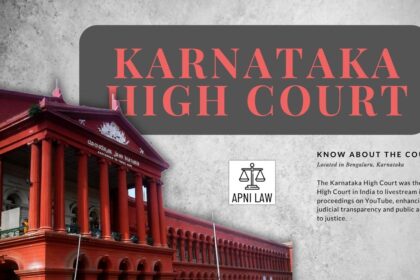Code: Section 24 of the Special Marriage Act, 1954
(1) Any marriage solemnized under this Act shall be null and void [and may, on a petition presented by either party thereto against the other party, be so declared] by a decree of nullity if—
(i) any of the conditions specified in clauses (a), (b), (c) and (d) of section 4 has not been fulfilled; or
(ii) the respondent was impotent at the time of the marriage and at the time of the institution of the suit.
(2) Nothing contained in this section shall apply to any marriage deemed to be solemnized under this Act within the meaning of section 18, but the registration of any such marriage under Chapter III may be declared to be of no effect if the registration was in contravention of any of the conditions specified in clauses (a) to (e) of section 15:
Provided that no such declaration shall be made in any case where an appeal has been preferred under section 17 and the decision of the district court has become final.
Explanation of Section 24 – Void Marriages under SMA
Section 24 of the Special Marriage Act, 1954 deals with the concept of void marriages. It allows either spouse to seek a decree of nullity from a court, thereby legally declaring the marriage null and void from the beginning (void ab initio).
Grounds for Declaring a Marriage Void
- If any of the essential conditions under Section 4(a) to (d) are not met:
- (a) Neither party has a living spouse at the time of marriage
- (b) The parties are capable of giving valid consent
- (c) The male has completed 21 years and the female 18 years of age
- (d) The parties are not within the degrees of prohibited relationship
- If the respondent was impotent at the time of marriage and continues to be so at the time of filing the petition
Exceptions
Sub-section (2) clarifies that this provision does not apply to marriages deemed to be solemnized under Section 18 of the Act (related to registered marriages). However, if a marriage has been registered in violation of conditions in Section 15 (a) to (e), such registration can be declared of no legal effect unless a final appeal decision has already been made under Section 17.
Illustration
Example 1: Violation of Section 4 Conditions
A couple marries under the SMA, but the male is only 19 years old at the time of marriage—below the legal age of 21. This violates Section 4(c). The marriage can be declared void under Section 24.
Example 2: Impotency at the Time of Marriage
A woman files a petition for nullity after discovering her husband was impotent at the time of marriage and still is. Under Section 24(1)(ii), the court may declare the marriage void.
Example 3: Invalid Registered Marriage
A couple within prohibited degrees of relationship registers their marriage under Chapter III. Such registration contravenes Section 15(d). Unless an appeal under Section 17 is pending or decided, the registration may be declared of no effect.
Common Questions and Answers on Section 24 SMA
1. What does it mean when a marriage is declared void?
It means the marriage is treated as if it never legally existed. No spousal rights or obligations arise.
2. Can both parties file for a decree of nullity under Section 24?
Yes, either spouse can file a petition against the other under this section.
3. What are the conditions under Section 4 that must be met?
They include monogamy, legal capacity to consent, age requirements (21 for males, 18 for females), and absence of prohibited relationship.
4. What if a marriage is registered but violates Section 15?
The registration may be declared of no effect under Section 24(2), provided there’s no final judgment under Section 17.
5. Is a court declaration necessary to void the marriage?
Yes, a formal decree of nullity must be obtained from a competent court for the marriage to be legally nullified.
Conclusion
Section 24 of the Special Marriage Act provides legal clarity and recourse for individuals trapped in invalid marriages. It ensures that marriages not meeting basic legal criteria—or affected by serious issues like impotence—can be declared void. This protects the rights and dignity of both parties involved.
For expert legal assistance and detailed case guidance, visit 👉 ApniLaw today!








